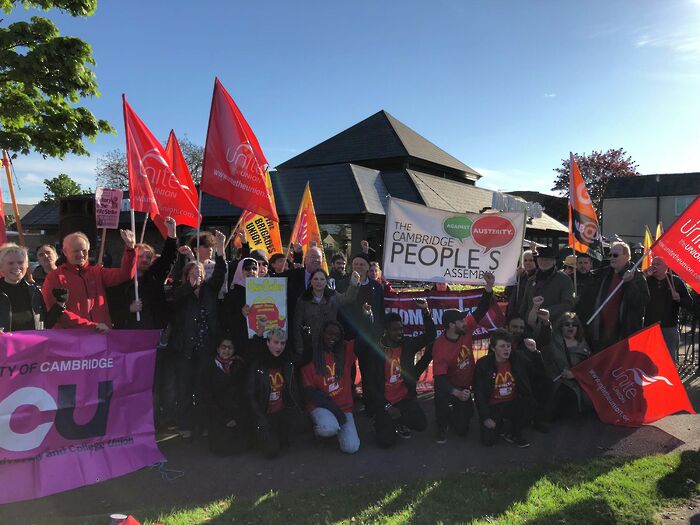The struggle against precarious work is all of our concern
Students must stand alongside those striking to protest low wages and the casualisation of work

Last Thursday, in an unprecedented action, staff at McDonald’s, Wetherspoons and TGI Fridays went on strike for £10 an hour wages and union recognition. The sheer scale of this strike by workers who have not traditionally been unionised shows the drive towards, and urgent need for, collective action in the workplace. In a generation that is frequently being denied access to secure, fairly-paid jobs, not to mention affordable housing, whilst being saddled with extortionate levels of higher education debt, the ability to collectively organise for change is imperative.
British Trade Unions underwent near decimation in the 1980s, with Thatcherite policies specifically designed to curtail their power. In particular, ‘sympathy strikes’ were outlawed, stopping unions striking in support of other groups of workers’ struggles. Workers have had to find new forms of solidarity action for the modern day, new ways to use our collective power to drive material change. And this is what these strikes are demonstrating: the possibility of coordinated strike action between different businesses, but also the possibility of mass solidarity in the struggle for workers’ rights across all industries. The fact that this strike has taken place across stores nationwide, already winning some wage increases, proves once more that it is by working together, by collectively standing for the change that we know is possible, that we can win.
“Young academics are in reality not paid the £10 an hour living wage that workers have been striking for this week”
The struggle against precarious work is all of our concern; thousands of workers are on zero hour contacts with no sick pay whilst their bosses line their pockets with the benefits of this precarious labour. As students, many of us are not so very far away from these workers who are striking for £10 an hour. This is not to suggest that all Cambridge students experience anything comparable to the levels of precariousness experienced by many of these striking workers, but that some students will work in these kinds of casualised jobs, and the categories of student and worker are not always completely distinct.
When we talk about workers’ rights, we generally do not annex students into these discussions, our conversations following the assumption that there is a distinct economic difference between the two groups. However, given the ever-increasing ties between the economic marketplace and the University, with increasingly research-led teaching and corporate-funded research meaning that the content of courses is dictated by businesses, our degrees function as training for the workplace. Training that leaves poorer students in thousands of pounds of debt, whilst those who can afford to pass through university without taking out a single loan are given yet more of an economic advantage.
Indeed, the collective action we have witnessed in the last year by the University and College Union (UCU) underlines the fact that we cannot ignore the fights that these hospitality sector workers are having now. Across the higher education sector, according to the Consumer Price Index, real-terms pay has fallen by more than 12% since 2009. Young academics, because they are paid by teaching hours rather than working hours, are in reality not paid the £10 an hour living wage that workers have been striking for this week. This is a particularly pressing concern in Cambridge, dubbed the most unequal city in Britain, where sky-high house prices, only made worse by new developments like the North West Development, are making living here increasingly unaffordable.
There are questions to be asked when the same university that is eager to pour money into a housing development does not seem to be paying its staff – academic and domestic – fairly, or ensuring its workers have decent pensions. We can no longer allow corporate interests to be prioritised over worker’s rights, and it is by understanding that our struggles are linked, by extending solidarity to those who are on strike and offering our support to the actions they take, that we will truly build a movement to counter the forces of casualisation and marketisation.
 News / Judge Business School advisor resigns over Epstein and Andrew links18 February 2026
News / Judge Business School advisor resigns over Epstein and Andrew links18 February 2026 News / Hundreds of Cambridge academics demand vote on fate of vet course20 February 2026
News / Hundreds of Cambridge academics demand vote on fate of vet course20 February 2026 News / Petition demands University reverse decision on vegan menu20 February 2026
News / Petition demands University reverse decision on vegan menu20 February 2026 News / CUCA members attend Reform rally in London20 February 2026
News / CUCA members attend Reform rally in London20 February 2026 News / Gov grants £36m to Cambridge supercomputer17 February 2026
News / Gov grants £36m to Cambridge supercomputer17 February 2026










